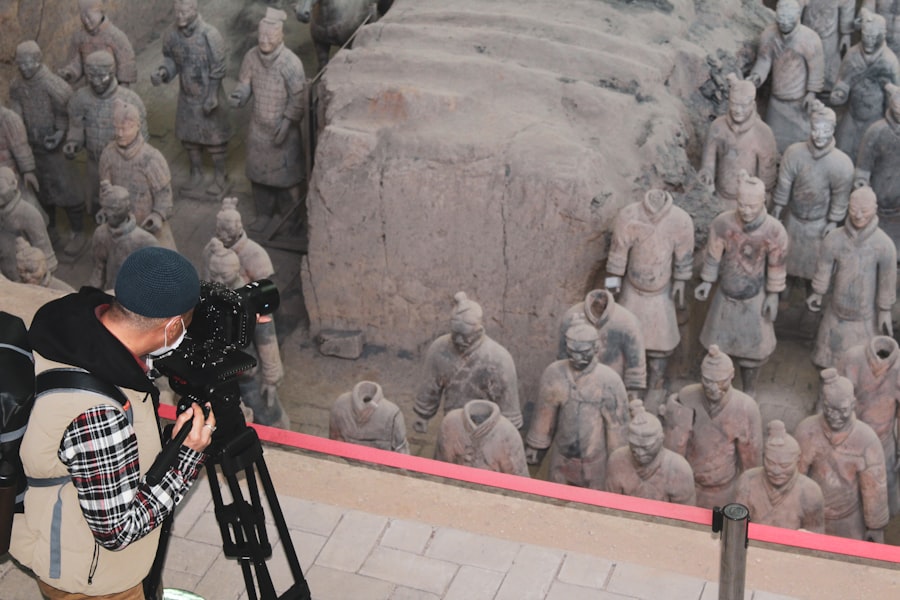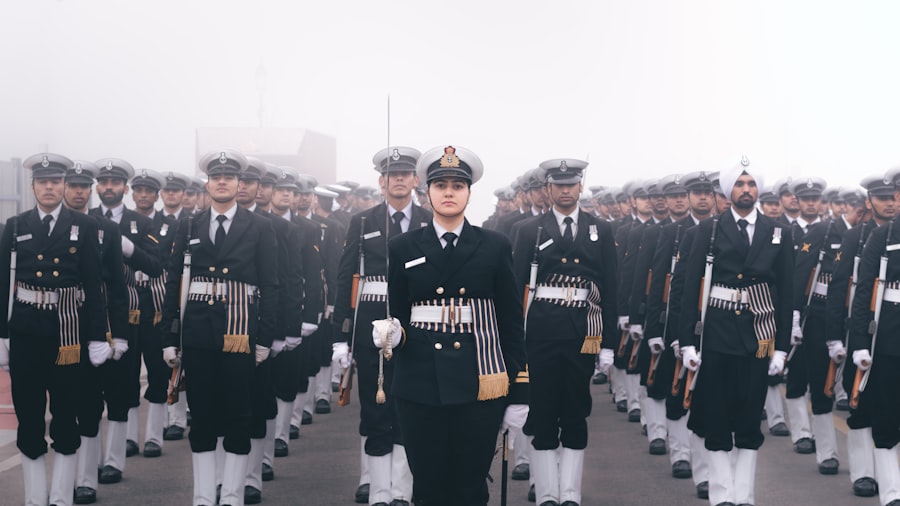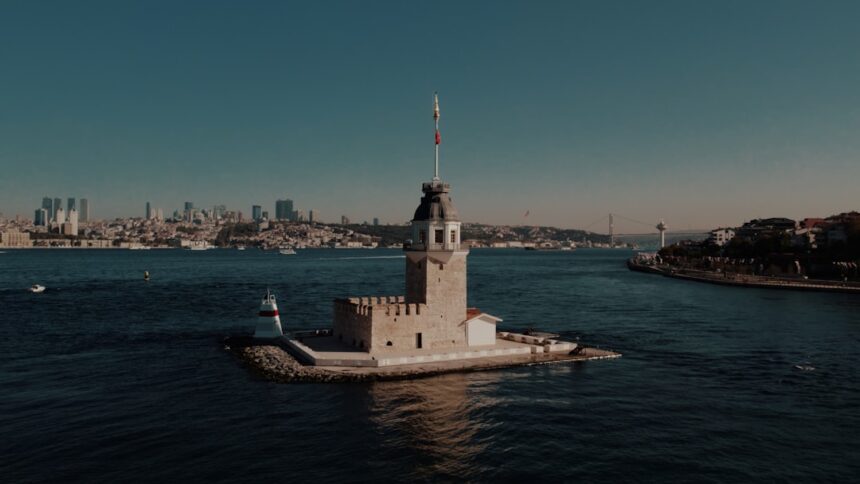The Military History Channel has long been a bastion for enthusiasts and scholars alike, offering a deep dive into the intricate tapestry of warfare throughout the ages. One of its most compelling documentaries, “Warriors of the Past,” serves as a portal into the lives, battles, and legacies of ancient warriors. This documentary not only chronicles the evolution of military strategies and technologies but also delves into the cultural and societal influences that shaped these formidable fighters.
By examining the lives of these warriors, viewers gain insight into the motivations, challenges, and triumphs that defined their existence. As the documentary unfolds, it invites audiences to explore the rich narratives surrounding legendary figures and their armies. From the disciplined ranks of the Roman legions to the fierce independence of the Celtic tribes, “Warriors of the Past” paints a vivid picture of how these warriors were not merely soldiers but also symbols of their respective cultures.
The documentary emphasizes that understanding these historical contexts is crucial for grasping the complexities of warfare and its lasting impact on modern society.
Key Takeaways
- Military history channel documentary explores the fascinating world of ancient warriors and their impact on modern warfare.
- From Spartans to Samurai, ancient warriors rose to power through their unique skills, tactics, and strategies.
- The evolution of weapons and armor played a crucial role in shaping the outcomes of historical battles and conflicts.
- Famous commanders and generals left a lasting legacy on military traditions and leadership strategies.
- The influence of culture and religion on warfare has had a profound impact on the development of military tactics and strategies.
The Rise of Ancient Warriors: From Spartans to Samurai
The rise of ancient warriors is a fascinating journey that spans continents and centuries, showcasing diverse cultures and their unique approaches to combat. Among the most renowned are the Spartans, whose militaristic society in ancient Greece epitomized discipline and strength. Trained from a young age in the agoge system, Spartan boys were molded into elite soldiers, instilling in them a sense of duty and loyalty that was unparalleled.
Their famed phalanx formation and unwavering resolve in battle made them a formidable force, feared by many adversaries. In contrast, the samurai of feudal Japan represent another archetype of warrior culture, characterized by their code of honor known as bushido. This code emphasized loyalty, bravery, and personal honor, shaping not only their martial prowess but also their philosophical outlook on life.
Samurai were not just warriors; they were also poets, artists, and scholars who contributed significantly to Japanese culture. The documentary highlights how these two warrior classes, despite their geographical and cultural differences, shared a common thread: an unwavering commitment to their ideals and a profound impact on their societies.
The Art of War: Strategies and Tactics of Historical Armies

The documentary delves into the intricate strategies and tactics employed by historical armies, revealing how warfare was as much an art as it was a science. Ancient generals understood that success on the battlefield required not only brute strength but also cunning and foresight. The use of terrain, weather conditions, and psychological warfare played pivotal roles in shaping outcomes.
For instance, Hannibal’s audacious crossing of the Alps during the Second Punic War exemplifies strategic brilliance that caught his enemies off guard and showcased his innovative approach to warfare. Moreover, the documentary explores how different cultures developed unique military doctrines tailored to their specific needs. The Mongol Empire’s rapid cavalry charges contrasted sharply with the Roman legions’ disciplined formations.
Each army’s tactics reflected its societal values and technological advancements. By examining these diverse strategies, viewers gain a deeper appreciation for the complexities of warfare and how they have evolved over time.
Weapons and Armor: Evolution of Military Technology
| Technology | Time Period | Advancements |
|---|---|---|
| Bronze Age Weapons | Around 3300 BCE – 1200 BCE | Development of bronze swords, spears, and armor |
| Iron Age Weapons | Around 1200 BCE – 500 CE | Introduction of iron swords, shields, and armor |
| Medieval Armor | 500 CE – 1500 CE | Use of plate armor, chainmail, and helmets |
| Gunpowder Weapons | 15th century – present | Introduction of firearms, cannons, and explosive devices |
| Modern Military Technology | 20th century – present | Advancements in ballistic missiles, body armor, and stealth technology |
The evolution of military technology is a central theme in “Warriors of the Past,” illustrating how advancements in weapons and armor have dramatically altered the landscape of warfare. From rudimentary stone tools to sophisticated firearms, each innovation has had profound implications for combat effectiveness. The documentary highlights key developments such as the introduction of the longbow in medieval Europe, which revolutionized ranged combat and shifted the balance of power on the battlefield.
Armor also underwent significant transformations throughout history. The heavy plate armor worn by knights in the Middle Ages provided unparalleled protection but came at the cost of mobility. In contrast, lighter armor used by skirmishers allowed for greater agility and speed.
The documentary emphasizes that these technological advancements were not merely about enhancing lethality; they also reflected broader societal changes, including shifts in military organization and tactics.
Legendary Battles: Conquests and Conflicts of the Past
“Warriors of the Past” takes viewers on a journey through some of history’s most legendary battles, each marked by its own unique circumstances and consequences. The Battle of Thermopylae stands out as a testament to courage against overwhelming odds, where a small contingent of Spartan warriors made a valiant stand against the vast Persian army. This battle has become emblematic of heroism and sacrifice, resonating through centuries as a symbol of resistance.
Another pivotal conflict explored in the documentary is the Battle of Hastings in 1066, which marked a significant turning point in English history. The Norman conquest fundamentally altered the political landscape of England and introduced new cultural influences that would shape its future. By examining these legendary battles, viewers are reminded that warfare is not just about territorial gains; it is also about the narratives that emerge from these conflicts and their lasting impact on civilizations.
The Role of Leadership: Famous Commanders and Generals

Leadership has always played a crucial role in determining the outcomes of battles and wars throughout history. “Warriors of the Past” highlights several iconic commanders whose strategic brilliance and charismatic leadership inspired their troops to achieve remarkable feats. Figures such as Alexander the Great exemplify this notion; his ability to unite diverse forces under his command allowed him to create one of history’s largest empires.
The documentary also examines leaders like Genghis Khan, whose innovative tactics and organizational skills transformed the Mongol Empire into a dominant military power. His ability to adapt to various combat situations and incorporate diverse cultures into his army was instrumental in his success. By showcasing these legendary leaders, “Warriors of the Past” underscores how effective leadership can shape not only military outcomes but also the course of history itself.
The Legacy of Military Traditions: Impact on Modern Warfare
The legacy of ancient military traditions continues to resonate in modern warfare, as many contemporary military practices can trace their roots back to historical precedents. “Warriors of the Past” explores how concepts such as strategy, discipline, and unit cohesion have been passed down through generations. The principles established by ancient armies still inform modern military training and operations, demonstrating that lessons learned from past conflicts remain relevant today.
Furthermore, the documentary highlights how cultural traditions surrounding warfare have influenced modern military ethics and conduct. The chivalric codes of medieval knights find echoes in contemporary rules of engagement, emphasizing honor and respect even amidst conflict. By examining these legacies, viewers are encouraged to reflect on how understanding history can inform current military practices and contribute to more effective conflict resolution.
Uncovering Forgotten Warriors: Stories of Unsung Heroes
While many warriors have achieved legendary status throughout history, “Warriors of the Past” also sheds light on unsung heroes whose contributions have often been overlooked. These individuals may not have commanded vast armies or led famous battles, but their stories are equally compelling. The documentary highlights figures such as Boudica, the Celtic queen who led a rebellion against Roman rule in Britain, showcasing her fierce determination and leadership.
Additionally, it explores lesser-known warriors from various cultures who displayed extraordinary bravery in defense of their people or ideals. By uncovering these forgotten stories, “Warriors of the Past” emphasizes that heroism comes in many forms and that every warrior’s tale contributes to the broader narrative of human history.
The Influence of Culture and Religion on Warfare
Culture and religion have profoundly influenced warfare throughout history, shaping not only motivations for conflict but also methods employed in battle. “Warriors of the Past” examines how religious beliefs often provided justification for wars while also influencing combat strategies. For instance, during the Crusades, religious fervor drove armies to fight for control over sacred lands, intertwining faith with military objectives.
Moreover, cultural practices surrounding warfare have shaped societal perceptions of honor and valor. The samurai’s bushido code is one example where cultural values dictated not only how battles were fought but also how warriors lived their lives outside combat. By exploring these intersections between culture, religion, and warfare, viewers gain insight into how deeply intertwined these elements are in shaping historical narratives.
The Decline of Ancient Warfare: Transition to Modern Military
As societies evolved, so too did their approaches to warfare, leading to a decline in traditional forms of ancient combat. “Warriors of the Past” explores this transition from ancient warfare to modern military practices marked by industrialization and technological advancements. The introduction of gunpowder fundamentally changed battlefield dynamics, rendering many traditional tactics obsolete.
The documentary highlights key events such as the Napoleonic Wars that signaled a shift towards more organized and large-scale military operations. As nations began to adopt conscription and develop standing armies, warfare became increasingly complex and intertwined with national identity. This transition not only altered how wars were fought but also reshaped societal structures around military service.
Lessons from the Past for the Future of Warfare
In conclusion, “Warriors of the Past” serves as a powerful reminder that understanding historical warfare is essential for navigating contemporary conflicts. The lessons gleaned from ancient warriors—strategic ingenuity, leadership qualities, cultural influences—remain relevant today as nations grapple with complex geopolitical landscapes. By studying these historical narratives, modern military leaders can draw valuable insights that inform decision-making processes.
Moreover, recognizing the sacrifices made by past warriors fosters a deeper appreciation for those who serve today. As societies continue to evolve, reflecting on these lessons can guide future approaches to conflict resolution and peacebuilding efforts. Ultimately, “Warriors of the Past” encourages viewers to honor the legacy of those who came before while striving for a more peaceful future informed by history’s rich tapestry.




